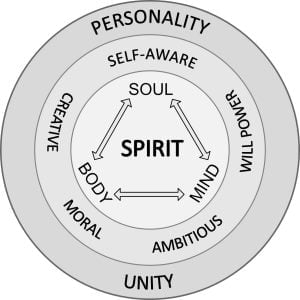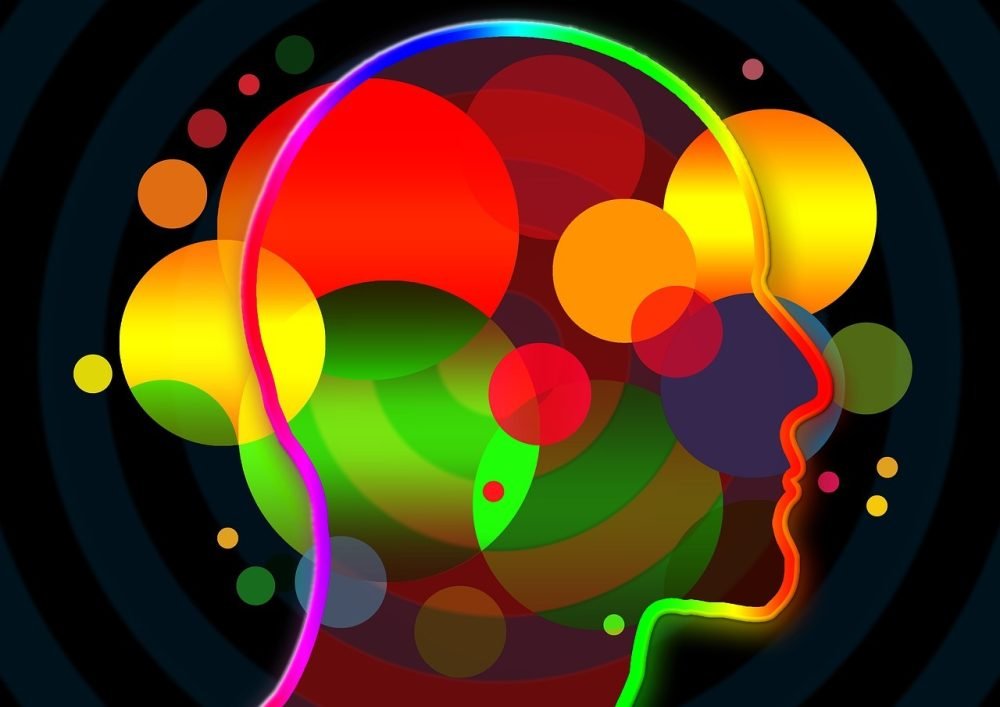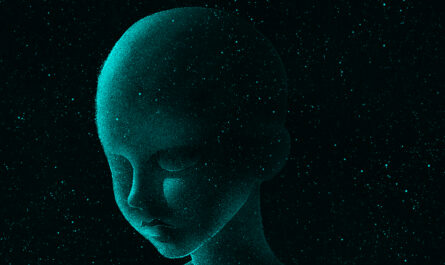Personality, Ego, Spirit, and You
The word ego is often bantered about as if it is something inherently evil, but it is simply the Latin word for self. It was made popular in 20th century psychology by the Austrian neurologist, Sigmund Freud, who used it to refer to the conscious activities of the brain as opposed to the relatively unconscious activities of the id (instinctual brain) and the super-ego (moral brain).
Having an ego does not necessarily imply we are egotistical, which is having an exaggerated sense of self-importance. Nor does ego imply we believe in the doctrine of egoism, a cynical philosophy claiming that the chief motivation for all conscious action is individual self-interest.
Nonetheless, there is a continuing trend of thought in New Age spiritual teachings and even in modern psychology that the ego, or self, is a dangerous thing, and that any notion of self is actually an illusion or a delusion. Such ideas have deep roots in Buddhism, giving rise to psychological theories postulating that all conceptions of self—the way we perceive ourselves—is a construct or a constructed reality; it is a narrative about ourselves that we have come to accept as real.
There is some truth to this. But whether our ideas about ourselves are self-constructed or socially constructed, the self is real. The truth is that, when contemplating your self, you must be careful not to confuse or conflate the manifestations of your mind with your true self—the personality that is you.
We may subscribe to popular constructs about who we are, but it is the self that dictates the narrative about the self; it is the self that accepts its own self-created constructs. Anything that can be known or seen can only be known or seen by the self. And any notion of enlightenment can only be to enlighten the self.
The true delusion is not the self, but rather the belief that the self is a thing independent of, or existing apart from, the rest of the universe—a misguided sentiment reinforced by illusions of selfishness and delusions of self-importance.
Any belief in a truly independent self is a delusion because no one in this world is entirely independent; we all rely on society and the world at large for our existence. Whenever people claim “I made it on my own,” they are ignoring the obvious—that they would have had no success if it were not for a country’s already established infrastructure, a free economy, their dedicated employees, and all the individuals who bought into their ideas or products (McQuaig & Brooks 2010).
While the self is not entirely independent, it is a separate reality, a spiritual reality. The grand illusion is self-importance, a self-centered frame of mind that cultivates a self-serving life style, one that inevitably results in self-isolation.
Whenever we live a self-centered life, we separate ourselves from other selves and distance ourselves from the reality of all personal relationships. Whenever we entertain narcissistic notions of self-glorification or superiority, we increase the risk of becoming lonely, confused, and despairing. Pride of self is good in measured amounts, but it can be self-destructive when taken too far, especially if it negates the value of other people.
Our spiritual aim is not to eradicate the ego (which is impossible anyway) but rather to integrate the self with the reality of the universe, as Lao Tzu advised. It is coming to realize who you are as well as where and how you fit in God’s universe—it is understanding your true nature and your true relationships to others, both human and divine, within the existing cosmos.
God-consciousness is equivalent to the integration of the self with the universe, and on the highest levels of spiritual reality.
– The Urantia Book
We are all interconnected in a cosmic system in which the parts depend on the whole and the whole relies on the parts. But despite our interdependence, we cannot deny our individual uniqueness; ourselves and our powers of free will. If anything, we should celebrate the personal and unique contributions that our selves have to offer the whole, while being mindful that any vain clamoring for selfish recognition is unrealistic in a God-centered universe.
Personality and You
As we ponder our individual selves and our inescapable relationship to the whole, the inquisitive mind must wonder—what is the self? And what do we mean by personality?
Personality is often defined as a characteristic way of thinking, feeling, and behaving—those distinctive aspects we usually associate with a person’s character or character traits. However, there is no generally agreed-upon definition of personality, even in the study of psychology.
Early studies put forth the idea that personality is a unity of individual mental traits—a psyche. Sigmund Freud proposed his personality theory in 1923, which divided the human psyche into the three parts already mentioned—id, ego, and superego.
In his theoretical model, the ego is the mediator or unifier between the id (animal instincts) and the superego (moral direction). It is your conscious self operating in the tension between the id (subconscious self) and superego (superconscious self). Since Freud’s time, the paradigm of personality studies has evolved into something quite different, becoming a behavioral science that tries to explain the differences in behavior from one individual to the next.
But there is an alternative concept. In this unique depiction, individual behaviors or character traits are viewed as an expression or manifestation of personality—but they are not personality per se.
Personality is not limited to associations of behavioral traits, nor is it just consciousness or psyche. Instead, imagine your personality as a separate entity, the observant you who overlooks your mind. You cannot function apart from the normal operation of your physical brain, but your personality is not your mind any more than your thoughts are your brain.
Each personality is entirely unique and changeless—there is no one else just like you in the entire universe of universes. It is that part of you that other people recognize no matter how much your mind, body, or soul change over the years. Personality in pure form is changeless, although it has the inherent ability to unite all those other parts of you that are constantly changing. It has the quality of unity, similar to the function of ego that Freud alluded to in his personality theory.
We are usually unconscious of this personal unity. Nonetheless, we often think of ourselves as having a body, having a mind, or having a soul. We are subconsciously aware that these parts of us are personal possessions. And to varying degrees, we realize these parts are not entirely independent—they are interactive and inseparable components of ourselves.
Personality functions as a personality system that is more than the sum of its components; it is more than a collection of behavioral traits and physical qualities. We can envision the personality as an encompassing, living matrix in which body, mind, and soul are integrated components in a unified system.
While this unique matrix never changes in and of itself, it serves to articulate and unify the constituent parts into a working and functional whole, one that changes and evolves continuously. And the product of this working system—personality, body, mind, and soul—is what we perceive as human identity or character.
Another component of the personality matrix is the inner Spirit since it serves as a shining guide to character and behavior. This active Spirit sits at the very nucleus of personality and is your portal to the absolute nature of God. It may not be a personal possession as such, but nonetheless, it is your guiding light.
Personality is a level of deified reality. 0.5.1
– The Urantia Book
Personality is a creation of Deity; it is a supermaterial reality. A physical body, therefore, is not a prerequisite for personality. Humans have personalities but so do angels and countless other types of celestial beings. And there are different orders of personality types—they are not all the same, neither do they all have the same spiritual status.
Personality Is Aware
Personality is not the intellect, but it is aware—it has a quality that allows you to be consciously aware of your own existence. It is a gift of God that endows you with an inner sense of self and a corresponding ability to be self-conscious as well as other-conscious; an awareness that other people are just as consciously aware as you are.
Personality awareness reaches up to the realm of superconsciousness, wherein you become conscious of your consciousness. Indeed, this is the true essence of mindfulness, which is being fully conscious of your body, your thoughts, your soul, your inner Spirit, God, other personalities, and the universe around you.
It is this sense of self and self-consciousness that allows you to say, “I exist.” This statement alone embodies a profound level of self-awareness, one in which you can see yourself. Your ability to be self-aware is an endowment that puts you far above the animal mind and further identifies you as a potential spirit being.
Personality is a distinct reality. It is not the mind because a thing cannot observe itself—the eye cannot see the eye. True enough, you can self-reflect (as in mindfulness), but it is your self that is reflecting. The very fact that you can observe your thoughts and feelings distinguishes your personality/self from your mind. Animals have no personality (as defined here); therefore, they have no ability to observe their thoughts. Instead, they are their thoughts.
Personality is perhaps what Eckhart Tolle would call the “silent watcher.” Or what Daniel J. Siegel alludes to when he states that, “The mind has a mind of its own.”
The observer cannot be the thing observed; evaluation demands some degree of transcendence of the thing which is evaluated.
– The Urantia Book
While personality is not the mind, it operates within the realm of mind. Think of your personality as your self wandering among your many thoughts and feelings. It observes these thoughts and chooses, consciously or unconsciously, among them. This is the vast mental arena in which your personality functions, evaluates, and decides.
Make a conscious and clear separation between your personality and your mind—realize that you are a personality that has a mind. This empowering knowledge helps you to objectify your thoughts and feelings, thereby making your mind something you control rather than letting it control you.

More Attributes of Personality
Personality discriminates by its moral awareness—the ability to choose how to conduct oneself in any situation. Moral awareness, or moral insight, enables you to evaluate and choose between different goals as well as the means needed to reach those goals. In particular, your personality distinguishes spiritual and altruistic goals over and above animalistic or selfish ones.
A moral being… knows what he is doing, why he is doing it, where he is going, and how he will get there.
– The Urantia Book
Personality has the ability to communicate with other personalities as well as to understand, sympathize, and love. True enough, animals can communicate to a limited degree within their own species, but they cannot share philosophical ideas or inner experiences as humans can. It is the intelligent and communicative aspect of personality that allows you to contact spirit—even the Spirit Source of all reality.
Personality is ambitious. Embodied within this matrix of identity is the spiritual desire to master the physical universe through the mediation of mind. Without this innate drive, there would be no scientific innovation, no philosophical pursuit, no religious quest, nor any progress in civilization or its institutions.
Personality is creative. The physical brain structure and memory patterns of animals and humans are similar but only humans possess the ability to associate and recombine facts, ideas, and relationships in such a way as to discover new facts, new ideas, and new relationships. It is this creative and exploratory capacity that leads to art, invention, philosophy, and ethics.
Personality is not time constrained—it is aware of past, present, and future. Animals do not regret or appreciate past or future events. The animal mind may think and have feelings, but it is only aware of the immediate objective world, whereas human consciousness is aware of both the objective and subjective worlds, past, present, and future. Only personalities can decide what they will do before they do it.
Your Spirit Guide is the spirit nucleus of your personality. And when you allow it to govern your heart, you begin to identify with that Spirit—to become spiritual in nature. Personality, when willingly unified with spirit, fosters spiritual insights, meaningful experiences, real achievements, and a sense of adventure—it is your individual and unique self in an ongoing and progressive spiritual journey.
Spirit is the fundamental reality of the personality experience of all creatures because God is spirit.
– The Urantia Book
Discover more about yourself: Your Soul – What Is It? and Your Mind – Make It Spiritually Receptive.




